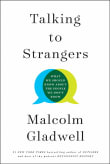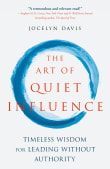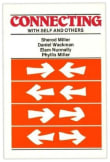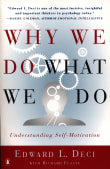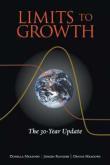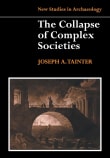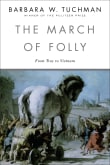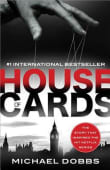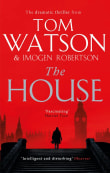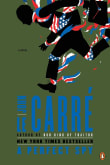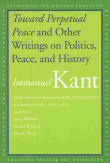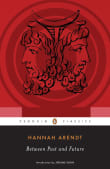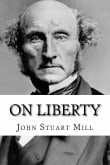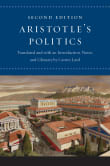The Prince
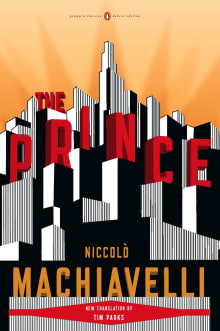
Book description
Here is the world's most famous master plan for seizing and holding power. Astonishing in its candor The Prince even today remains a disturbingly realistic and prophetic work on what it takes to be a prince . . . a king . . . a president. When, in 1512, Machiavelli…
Why read it?
8 authors picked The Prince as one of their favorite books. Why do they recommend it?

"The Prince" is, perhaps, the most misunderstood book in history, which is unfortunate because it has much to teach, which is why I read it every year (along with "The Art of War" by Sun Tzu). Note that I do NOT read this book as an instruction manual; rather, I read it to inform career risk management, i.e., I read "The Prince" to understand how Machiavellians will come after me, and then I derive strategies to deal with them.
In sum, I read "The Prince" to play good defense in Corp America, and it has helped me immensely. I wish…

Machiavelli is often despised as the man who promoted both authoritarian leaders and the notion that the ends justify the means, but this is to misunderstand the importance of the context within which he was writing: 16th century Florence – which was besieged by enemies on every side who proclaimed adherence to the Christian faith but acted as monsters. Machiavelli’s writing made two things clear to me. First, leaders and leadership cannot be understood if you abstract them from their context – when political morality is a contradiction in terms then leaders must be wary of sacrificing their followers…
From Keith's list on understanding why we get the leaders we do.

I first read The Prince on my MBA and it is a brilliant wake-up call for leaders. He was vilified for writing it, because he skipped the customary hand-wringing about virtue and morality to focus on what really works. Some of it sounds brutal to the modern ear, but the key leadership lesson it taught me is that, for leaders, perception is more influential than reality. The more people you lead, the less they will be able to get close enough to you to understand your every thought and intention. So most followers guess, based on the distant messages they…
From Eve's list on what you really need to know about leadership.
If you love The Prince...

The Prince is a brutal book. It sets out to be advice for a would-be tyrant. But the book is so much more than that. Machiavelli, was a democrat, a man who believed in popular participation. And he arguably wrote this book as a kind of warning. I love this book and quote it all the time, not least because it contains timeless insights, such as that the greatness of a leader depends on the quality of their advisors, and the maxim that once you take over a new state, you need to “make a list of the crimes that…
From Matt's list on deep thinkers of politics, democracy, and philosophy.

Once read, never forgotten. To explain the "Machiavellian" behaviour which makes up the majority of spy and political thrillers, you should start with this. It's even recommended as a leadership manual. The Prince is a political treatise written in the 16th century by Italian diplomat and political theorist Niccolò Machiavelli as an instruction guide for new princes and royals. It outlines strategies that a ruler must follow to govern. The message behind it is a warning. "Just because you behave decently doesn't mean others will."
From Louise's list on spilling the beans on the political system.

The classic description of how politics is practiced rather than how it ought to be practiced. Forget the caricature: the work is the distilled wisdom of an astute participant-observer of politics as it was practiced during a time of troubles. Since that is what our future holds, it might be good to know what the rules are. Machiavelli is quite abstract and speaks in aphorisms and generalities, so for a felt sense of what life is like when “the strong do what they can” see Thucydides’s History of the Peloponnesian War.
From William's list on the grim ecological-political future.

One of our greatest abilities is to evolve, which is based on our need for survival. Historical references provide a great measure of this experience for our personal clarity. Written in 1532, Niccolò Machiavelli penned The Prince as a leadership guide for Lorenzo the Magnificent and any new princes and royals. Irrespective of the title, the book's theme is of accepting that one’s aims – such as glory and survival in this case – can justify the use of any means to achieve those ends. When we are transforming our stories, we often focus solely on the outcome irrespective…
From Ian's list on personal development books.

Considered one of the great publishing scandals of all time, The Prince is also a profound, fascinating and surprisingly entertaining read. Removed from political office in Florence in 1512, tortured for crimes he hadn’t committed, Machiavelli withdrew to his country farm and began to set down his thoughts on politics. How does a man have to behave if he wants power? How can he hold on to it once he’s got it? And the great scandal of the book is that, analyzing the exploits of one great leader after another, Machiavelli just tells the truth, straight from the hip: “If…
From Tim's list on understanding the Italian mindset.
Want books like The Prince?
Our community of 12,000+ authors has personally recommended 100 books like The Prince.


